Board Candidates 2024
31 members have put themselves forward for 8 positions on the DFC board. They are listed in alphabetically by surname below.
Please take time to read through each candidate’s statement and prepare your list of preferences, and remember that you must be a full member to vote.
The deadline for new members to join the DFC and be eligible to vote is Friday 10th May 2024. Voting will open on Monday 13th May 2024 and close at midday on Friday 31st May 2024. When voting opens, every member of the DFC eligible to vote will be emailed a unique code and link enabling them to cast their ballot.
Best of luck to all of our candidates, and thank you for putting yourselves forward.

Olu Adaeze
Director/Producer – Ikenga Creative Lab
I am thrilled (and a little terrified) to express my interest in serving on the Documentary Film Council’s board. My intention first and foremost is motivated by a deep-rooted desire to amplify voices like mine within (and outside of) the industry. I’m Nigerian-born, Caribbean and British-raised, neurodiverse, raised poor, grew up mostly without parents, then at a children’s home and spent some years homeless. My journey into the creative ‘sphere’ has been unconventional and at times felt like nothing short of a miracle. It has been marked by challenges, confusion, throwing myself into the deep end and an earnest passion. It has also been marked by a resilience I didn’t know I had. I’d like to serve on the board as a conduit for those like me who – in varying ways – face unseen and unknown barriers to entry, are somehow marginalised and also as a link between the industry and independent storytellers like myself. I’m passionate about representation and inclusion (on both sides of the camera) that isn’t tokenistic or symbolic but stems from the inherent knowing and acknowledgement that we all make up society.
I consider myself an early career filmmaker. However, experience wise, I’ve worked across various sectors including theatre, TV, fashion, music, and film – serving in roles spanning creative direction, writing, directing, producing, event management, on production teams and in community engagement. I recently established a production company and independently created a proof-of-concept mini-documentary (as part of a series of mini docs I am working on). Taking the independent route without funding or support brings me into alignment with DFC’s core objectives and makes it easy for me to advocate for its ethos and values.
Beyond the creative industry, I served on the board of Westminster Business Consultants, a junior enterprise fostering student development through self-initiated projects and forging strategic alliances with local and global businesses. During my masters degree (MA Human Resource Management), I served as part of a committee overseeing university policy as relates to students, contributing to decision making and curating best practice. Other previous work (Bigga Fish / Profile books / Hackney downs studios) comprised compliance reviews, goal setting, performance evaluations, processing and paying salaries and keeping senior management accountability.
I want to highlight that I am particularly passionate about the DFC’s initiatives combatting industry abuse (especially within an industry prone to power dynamics, where the unpredictable nature of the job can then foster such abuses) and workplace safeguarding. I am keen to champion ethical safeguarding practices, not just in the workplace but for documentary subjects that are vulnerable, historically marginalised and those with less ‘geo-political’ power.
I hope my multidisciplinary background, along with personal and professional experiences positions me as a prospective asset to the DFC’s board. I’m eager to both learn and make a meaningful contribution to the documentary filmmaking landscape. Regardless of the outcome, grateful for the opportunity and encouragement to apply – it’s bolstered my courage.

Zan Barberton
Documentary Director and Editor – Boundary Pictures
Dear colleagues, I would like to nominate myself for the DFC’s board, because I really respect and love what the DFC is doing. I met some of it’s founders at Sheffield last year and felt strongly since then that it is a project worth supporting: Documentary for me is crucial to the functioning of a democratic society and also for a nuanced discussion about the important issues around us. It reaches the parts that traditional journalism and drama fail to reach, and in a world dominated by social media it is utterly necessary as a way of responding to the world around us.
Documentary making was not an easy industry to get into, and I still struggle with imposter syndrome, despite my various achievements. I don’t think it was particularly receptive to women at the time I entered and certainly not neuro-diverse women like myself. My response to this has been to seek out and support other women in the workplace, particularly the technical and creative ones. I co-founded and help run a social and support community for female and minority-gender editors. This has been a brilliant experience and has partly inspired my putting myself forward.
Am I qualified? I don’t have experience as a board director but I have worked my whole career in documentary – as a broadcast editor, a TV worker, and an independent director and producer. I was trained in the workplace; on Tony Blair’s New Deal, setting up the UK’s first local terrestrial TV station. Training others was built into the way I worked: I’ve taught diverse new entrants to the industry for the NFTC, trained children in documentary skills in Palestine and Kosovo and run workshops for young people in London and beyond. A film I made with young self-harmers is currently doing the festival circuit. Opening up the industry to others is in my opinion foundational to being a documentary maker. In addition I have experience in various roles of responsibility, I’ve set up a charity and also two PLC’s, organised various small festivals and obviously producing films has its moments!
I recognise that there are currently huge challenges facing the industry. I feel very aware even entering this territory that I have so much to learn here and this is another of my motivations in stepping forward: I would like to help the DFC in their project and offer my own experience and passion for diversity, training, ethical frameworks and distribution to the membership.
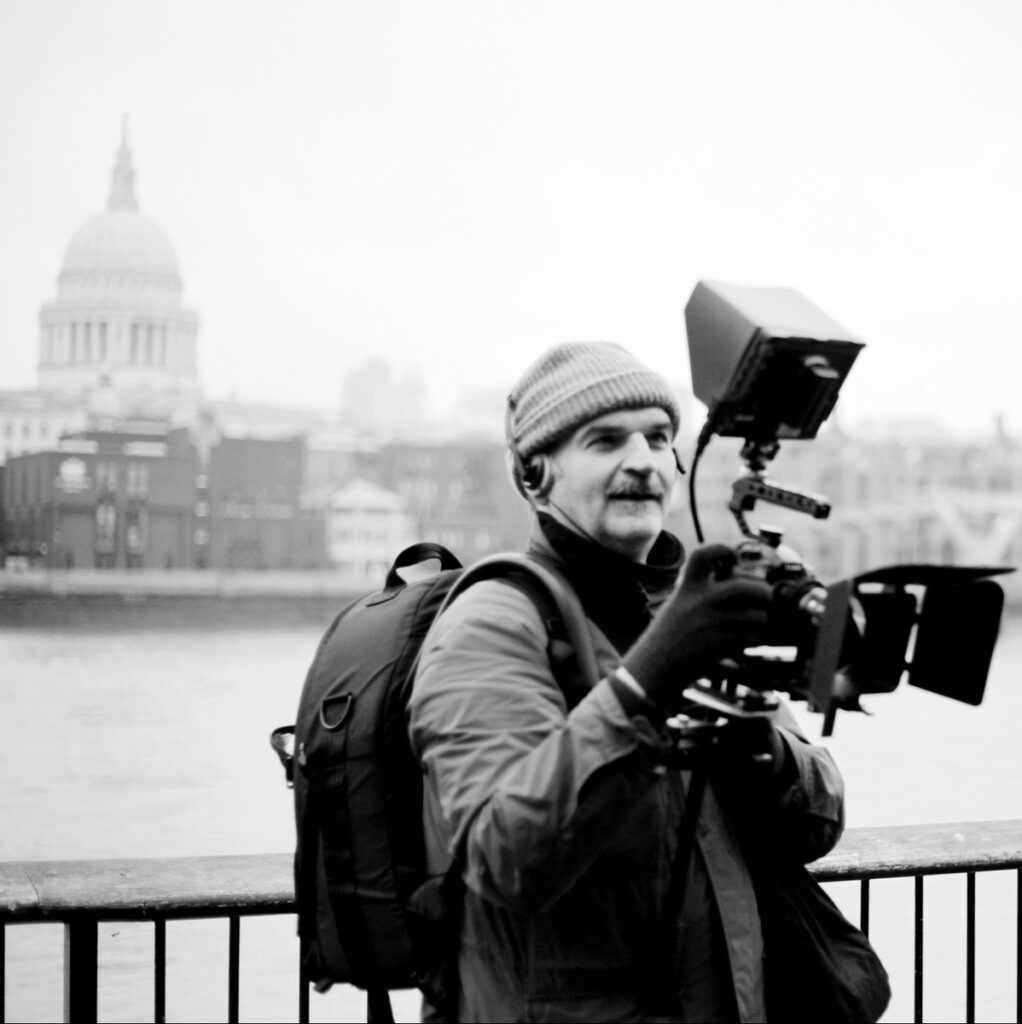
Fotios Begklis
Documentary Practitioner and Senior Lecturer – London College of Communication
My name is Fotios Begklis. I am a documentary practitioner and a Senior Lecturer at the London College of Communication. As a practising, independent documentary and non-fiction filmmaker, my creative work constantly explores innovative ways of making films to tell engaging stories that are deeply rooted in people and explore social issues in visual and poetic forms. My ambition as an educator is to discover new paradigms of filmmaking practices that go beyond traditional ways of learning and teaching, focusing on creativity, communication and inclusivity. I am committed to inclusive pedagogical strategies that facilitate the academic success of all my students, especially those from underrepresented backgrounds, and cultivate supportive environments that empower diverse students. The reason I wish to serve on the DFC’s board is that I want to bring all these qualities to help DFC develop synergies that enhance the educational experience of current and future students, create bridges with documentary filmmakers and ultimately, contribute to the enrichment of independent documentary production. I believe that my wide experience working in practice-based university settings teaching practical filmmaking skills, combined with my work as an independent documentary filmmaker, will allow me to inform the DFC on ways to work closely with universities, develop inclusive curricula and find pathways for university graduates to start a career in documentary film making. Furthermore, my experience working on many documentary projects and making films with local communities beyond the formal academic environment, will help DFC strengthen non-traditional paths in documentary making, alongside developing alternative curricula for communities that use documentaries as a vehicle to explore local histories, culture and identity to find and develop their voices. I believe that I can help DFC establish partnerships between universities, documentary filmmakers and production companies, offering internships, mentorship programs and on-the-job training. This not only enhances students’ practical skills but also immerses them in the realities of different communities, fostering a deeper understanding and respect for diversity. Furthermore, Higher Education institutions can utilise their facilities to support independent documentary filmmakers. For example, by allowing them to use their post production facilities over the summer, so that independent documentary filmmakers and students could come and work and learn together. Also, universities can use their facilities to host film festivals, boot camps and summer schools that spotlight documentary-making.
One major aspect I think I can contribute as a board member of DFC is exploring the ethical implications of the latest AI developments in documentary and nonfiction filmmaking production. The ethical considerations surrounding the use of AI in nonfiction filmmaking are complex and multifaceted. With my experience working with AI as a filmmaker, researcher and teacher, I can lead in the development of guidelines and recommendations for responsible AI usage in nonfiction filmmaking and explore the potential benefits and challenges associated with AI integration in documentary production.
I hope that I have the opportunity to contribute to the advancement of independent documentary production as a member of the DFC board. Thank you for considering my application.
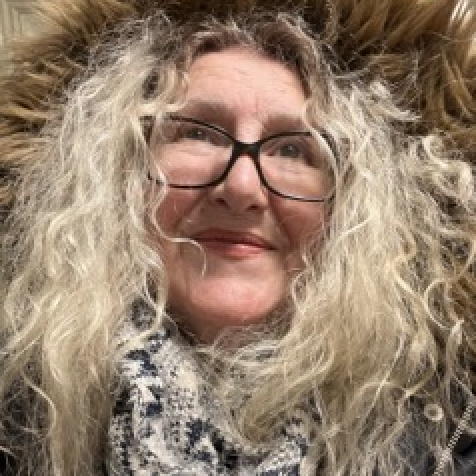
Lyn Champion
Executive Producer/MA Documentary Senior Lecturer – BBC/Nottingham Trent University
I have won 5 international awards for BBC Network documentaries, and been an executive producer, series and strand producer. I have a long history in production in and out of the BBC and I wrote and led an MA in multi platform documentary supervising 100s of documentary films over the past 9 years at UG, PG and PhD levels. I am a hands on producer and educator, with much experience in both audio and video documentary, and I specialise in the history and theory of documentary film. I would be honoured to serve on the DFC’s board.

Flore Cosquer
Managing Director – Scottish Documentary Institute
After years working in fiction and documentary production in France, I joined the core team at Scottish Documentary Institute in 2010 to manage the Institute’s slate of training initiatives and industry events. I became Managing Director of the organisation in 2022.
Scottish Documentary Institute (SDI) was established in 2004 to nurture documentary filmmakers and audiences, and to advocate for the unique and vital contribution of independent documentary to the film industry ecosystem and to our society.
We believe in the power of documentary to spark critical thinking and to inspire positive social change, in a generous and thought-provoking way.
Through training, funding, inspirational events and distribution, we deliver a ladder of development opportunities to benefit all Scotland-based directors and producers and support them on a national and international level. We also offer a range of programmes to international filmmakers, and we actively collaborate with documentary organisations around the world to champion and celebrate the art form.
In the current times too often defined by polarisation and sensationalism, independent documentary is needed now more than ever. But it chronically struggles to be funded and distributed. And the filmmakers bringing to the screen a kaleidoscope of experiences, critical and ambitious films, struggle to sustain a career.
To challenge the status quo, SDI has made its priority to systematise filmmaker-based support, to promote the advancement of equity (i.e. taking individual needs into consideration to reach an equal outcome rather than offering the same resources and opportunities to everyone) in the documentary sector, and to support the dissemination of documentaries towards wider audiences, and more specifically young audiences.
In 2023, I had the honour to be invited to join the interim board of the Documentary Film Council. I would love to get the chance to continue contributing to the much-needed work done by the DFC, and to support the leadership team of the organisation achieve and surpass its goals, ensuring that the whole of the UK independent documentary sector is heard, and adequately supported for the years to come.
There is so much at stake and I want to help in any way possible.
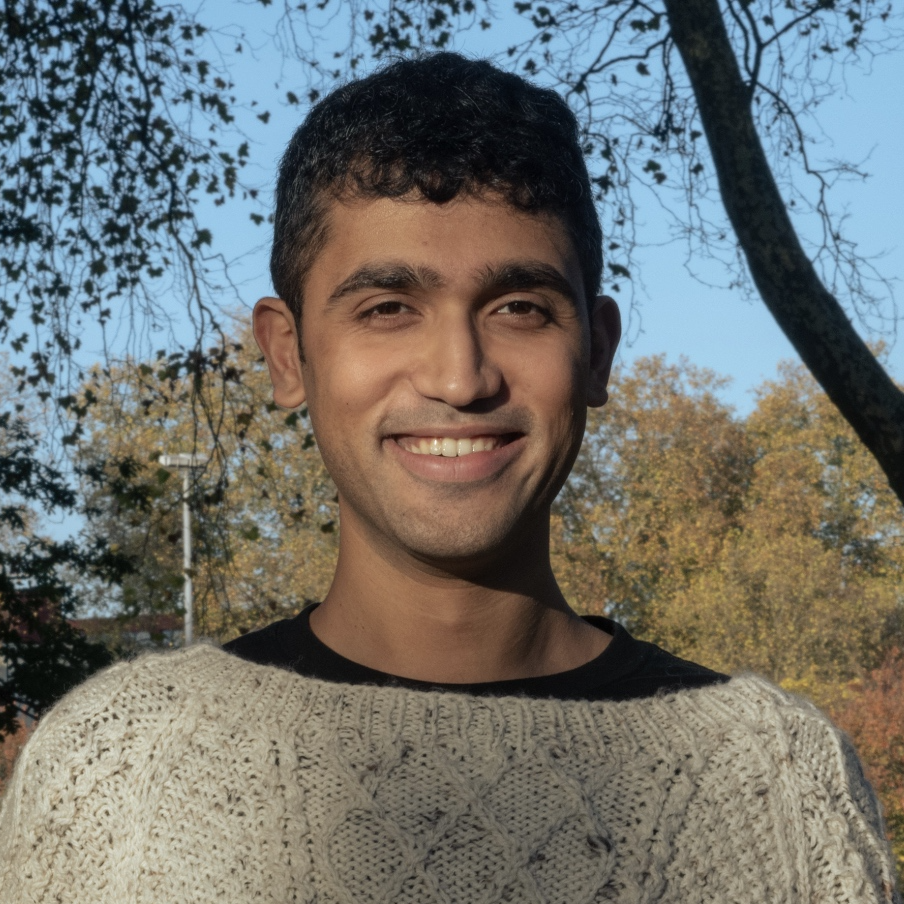
Wayne D'Cruz
Distribution Manager – MetFilm
The DFC presents an excellent opportunity to harmonise efforts in the sector to advance our collective interest in building a successful, sustainable marketplace for documentaries.
I have worked on more than 40 theatrical releases of documentary films in the UK, and understand both the challenges and opportunities of independent documentary distribution. Key titles I have supported include ERIC Ravilious: Drawn to War (which grossed £325k, and won the Screen award for Documentary Campaign of the year), The Ponds (which grossed £85k after opening on one screen), and Resilience (a non-theatrical success that went on to influence Scottish health policy). In 2019, I won Screen’s Rising Star award. Last year, I was accepted as a full member of BAFTA.
Before embarking on a career in film distribution, I earned an MA from King’s College London for my study on emerging distribution practices in the British film industry.
A desire to champion diverse screen narratives, and widen audience access is what brought me to a career in film, and remains a key motivation. I believe my skills and experience would lend a unique perspective to the DFC board.
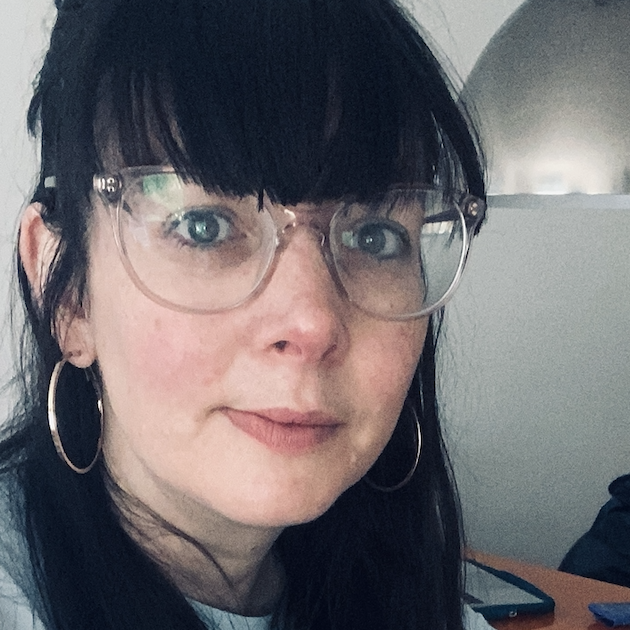
Fiona Fletcher
Film Freelancer / Film Relationship Manager – British Council
I am a passionate and active member of the documentary community with 15 years of experience working across funding, talent development, distribution, programming and festivals, and a holistic view of both the opportunities and challenges facing documentary filmmakers and the non-fiction landscape at large. With a strong working knowledge of the development and goals of DFC, and many areas of experience to draw upon, I think I would be able to productively contribute to DFC as a board member.
I have a clear understanding of the challenges that are specific to the independent documentary sector and why representation and advocacy is so critical now – and ongoing. Having been closely engaged and invested in the early stages and formation of DFC, I am committed to its purpose, as well as optimistic about the goals it is seeking to achieve, and would be glad to contribute towards DFC’s future and better conditions for the UK field.
From across a variety of roles and projects during my career, I bring a range of skills and experience across funding, talent development, major film festivals, distribution, as well as working more directly with artists and filmmakers bringing creative projects to fruition. Throughout this time I have been an advocate for a more compassionate space for doc filmmakers, creating pathways for the development of careers, and for promoting a more equitable and inclusive sector.
I have worked collaboratively alongside fellow sector organisers (Sheffield Doc Fest, Grierson Trust, Reclaim the Frame, FWD-Doc, Docs Ireland) and with many voices across different parts of the sector through panels, 121s, labs, peer-to-peer events and community-led funding programmes (e.g. BFI Doc Society Ripple Effect Fund).
Contributing as a representative of the DFC board, I would be committed to getting behind the issues most pressing to the tireless independent filmmakers on the frontline, who tell truth to power through film and who need to be economically valued, supported in their wellbeing and championed for the transformative impact their work brings to society and culture.
I have worked in support of documentary filmmakers, from new creatives taking early career steps, to producers at all levels, as well as organisations working outside of the established institutions (and outside of London). I would bring experience of creating transparency, and open lines of communication with stakeholders and beneficiaries. I would contribute to DFC’s accountability to its members, as well as the strategic aims to hold decision makers to account, continuing to help push forward the collectively held priorities represented by the council. I would contribute my organisational skills in effective planning and reflection time to ensure collective objectives are being met.
I’d like to put to good use my previous extensive outreach work across the UK, to engage more members and ensure that more voices are being counted as part of the DFC community, particularly those who have been sorely underrepresented in the sector previously.
I am in a good position now to help forge connections with international peers and represent the DFC in these settings, to help bring more opportunities for shared learnings and collaboration into focus. It is vital that the DFC continues to thrive and provide crucial visibility and value to the doc sector.

Maia Krall Fry
Associate Director of Strategic Partnerships – Creative UK
Connections are what drive our creativity. Sitting at the heart of what powers UK talent to produce world-class documentary. However, our talent are working within a challenging industry framework, without the scale of innovation and development funding, freelancing infrastructure, and mental wellbeing support that is needed to enable everyone to thrive. By harnessing the power of connections together here at the DFC, we will reimagine and realise our collective vision for the future for our sector. I intend to join the DFC board to drive this change, utilising my career working across growth in member-led organisations, partnership development, and working in editorial roles across the documentary sector.
As the Partnerships Director at Creative UK, I ideate initiate and oversee strategic industry activities that drive change. Working with my relations at organisations from the BBC and Channel 4, to YouTube and TikTok, we together build income-generating and impact-led initiatives that address the key issues facing the UK’s creative industries. Utilising this expertise I look forward to spearheading coordinated action in response to the priorities of the independent documentary industry. Crucially, activities that also bring in core-funding for the DFC to enable us to continue to grow our work.
During my first years at Creative UK I was responsible for overhauling our cross-sector membership structure. Uniting major enterprises, freelancers, innovators, and students, to govern our policy work and drive sector-wide change. I look forward to nurturing the DFC community and the DFC committees, and growing our championing and advocacy potential across the UK.
For the past three years I have directed the UK’s largest cross-sector Festival of the Creative Industries; the Creative Coalition Festival, now titled The Big Creative UK Summit. Regular speakers include political leaders including the Secretary of State; CEOs from within the creative industries and industry household voices. Utilising these connections to share our action will enable the DFC’s voice to be heard on a wider scale.
For the past 9 years I have sat on the Editorial Board of the World Congress of Science and Factual Producers, and have an extensive network of international and UK based friends and colleagues within the documentary sector. Staying close to their priorities, challenges, and opinions will enable me to facilitate transparent communication within the documentary community at home and abroad.
Prior to this I was the deputy Director at the Wellcome Trust’s entertainment department and spun it out to become its own charity; OKRE. We delivered events for the TV, games, film sector, and gave commissioning grants. Editorial activities I oversaw included the BFI Screenwriting Fellowship, and BBC 4 Experimental Stories.
This role came following a career in factual TV production working as a director and producer at Windfall Films, Wingspan Productions, Pioneer Productions, and at BBC Factual as well as as an independent documentary PD.
I look forward to shaping industry debates, sparking new industry priorities, and growing the DFC’s multi-year capacity within this role.
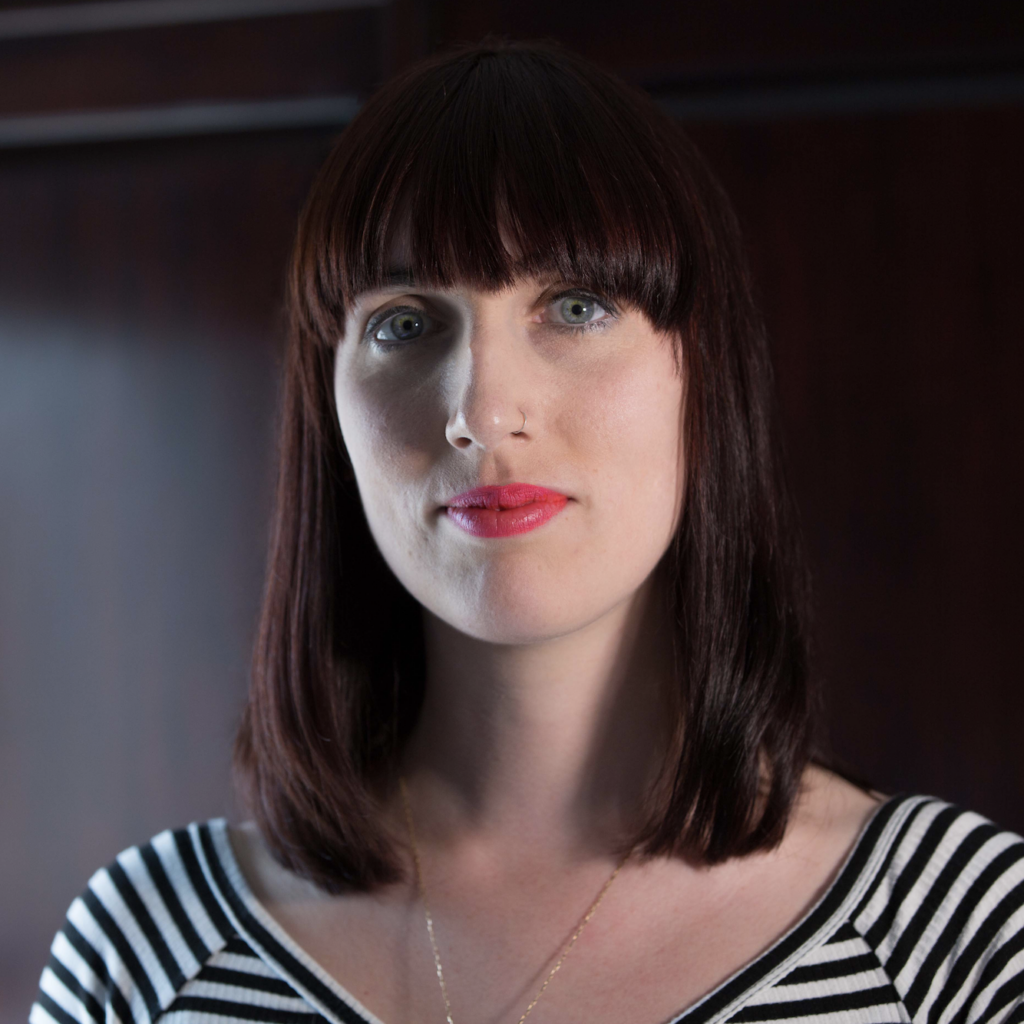
Roisín Geraghty
Producer / Head of Industry & Marketplace – Docs Ireland
As a passionate documentary film enthusiast and professional, I am interested in serving as a part of the DFC board to aid in the righteous aims and objectives of the organisation. I work as a documentary and industry programmer, as well as independently producing non-fiction film, and have a well-rounded knowledge and understanding of the challenges in our industry. I work in both the Republic of Ireland and Northern Ireland, as well as collaborating with mainland UK partners through my work at Docs Ireland in Belfast, as well as through the Ireland/UK doc co-productions I have produced.
I want to be a part of engaging and advancing towards solutions to the issues facing documentary filmmakers, and know that a collective approach through the DFC will be the most effective way to do this. I have been serving as interim Chair of the DFC Board since summer 2023, a time during which we have have laid the groundwork for an organisation that I believe can be a leader for change in documentary. I would be honoured to continue engaging with this important work.
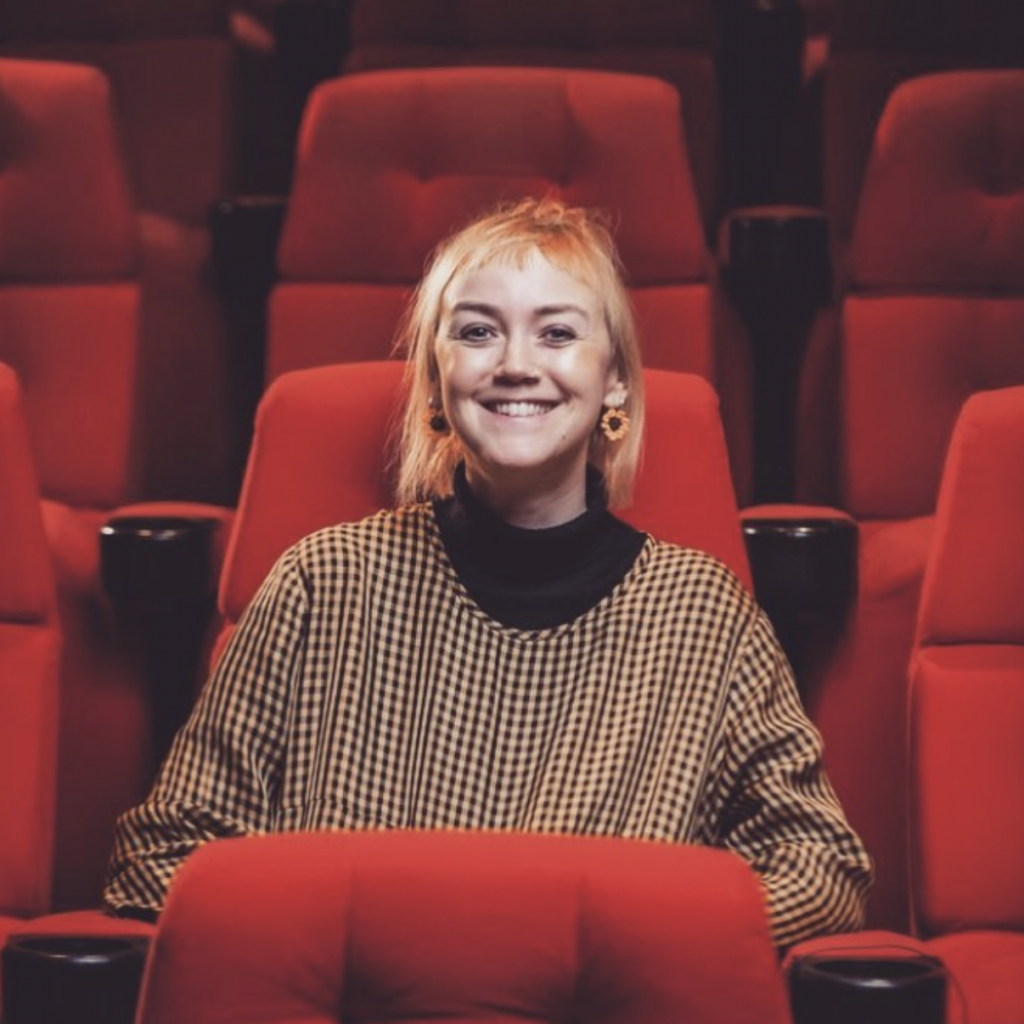
Jessi Gutch
Freelance Filmmaker – Fig Films
Having been on the Interim DFC Board, I’ve enjoyed being able to channel the frustrations and fears that we all feel as independent documentary filmmakers, into concrete actions, lobbying, and impactful ideas. I am a firm believer in the power of the collective voice and I think the DFC is one of the best chances that we have as a community of enacting much needed change.
If I was to be elected to serve on the DFC board I would have two key priorities in terms of representation – that of disability, deafness and neurodivergence, and that of emerging filmmakers, particularly from marginalised backgrounds, working towards or on their first feature.
I am living with incurable cancer and proudly identify as disabled, and a passion of mine is around looking at access from a political, creative, and spiritual place. How do we progress past the bare minimum of accessibility and transform the industry into a place where people are able to not only sustain themselves but thrive in a setting that prioritises radical care? How do we stop losing talented filmmakers because the industry is not set up in a way that allows for space to rest, grow, and flourish?
I am also currently in late production on my first feature, Border Town, which I have been making for the last two years, having previously made a number of industry supported short films. This process has been eye opening in terms of how difficult it is to receive proper funding and support for a first feature. Therefore I would also focus on ways in which we can do this better, lobbying for more specific grants for filmmakers working on their first feature, more broadcast opportunities like First Cuts. I would also look towards the fiction space as somewhere we can learn from in non fiction – as an example of where debut films have a whole ecosystem in place that ensures the best chance of success, recognising how important that first feature is for the ongoing success and career of that filmmaker and promoting them as a new voice to the international industry.
I live and breathe independent creative documentary and it would be an honour to represent our community and fight for a more valued and better supported industry that we all deserve, as people driven by making, distributing and exhibiting films that change and represent the beautiful, vulnerable, messy, complex world that we all live in.
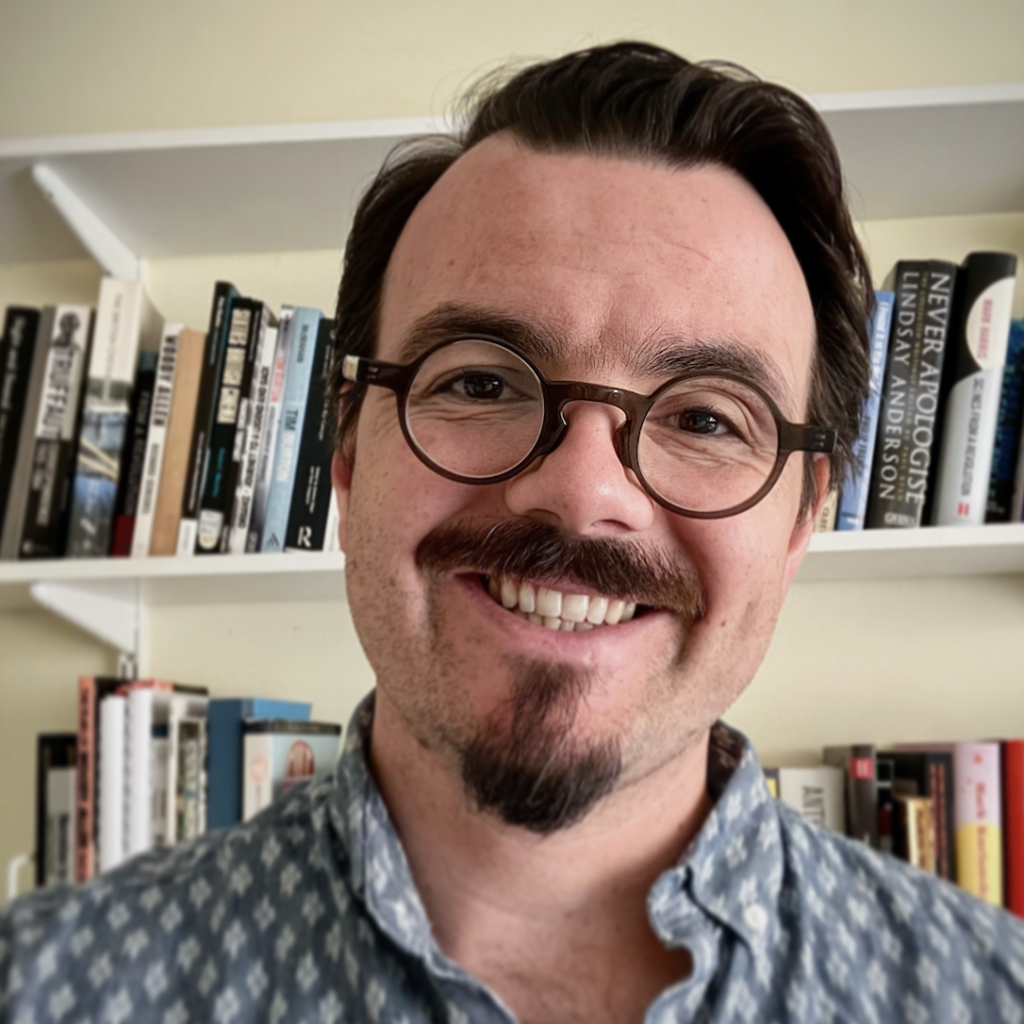
Martin Hall
Course Leader / Senior Lecturer – York St John University
Dr. Martin Hall is a distinguished senior lecturer and is the Course Leader for Film Studies at York St John University, recognised for his research on social justice and documentary cinema, with a focus on the adventure documentary and European art cinemas. In over ten years as an academic he has made significant contributions to academia, film production, and the promotion of emerging filmmakers.
As the founder of the Cinema and Social Justice Project, he works to understand the relationship between cinema and pressing social issues. His research questions how cinema navigates justice, equity, and human rights, offering profound insights into the complexities of contemporary society.
He has produced works which have become essential resources for students and scholars delving into the academic study of film. His academic interest in documentary filmmaking has led him to become a filmmaker, producing films which explore the boundaries of storytelling and visual expression. His films have been shown at almost 20 prestigious short film festivals across the United Kingdom and have been licensed by the British Film Institute’s ‘Into Film’ charity for their streaming platform, whose remit is to champion and realise the potential of film, cinema and moving image to create inspiring, inclusive learning experiences for young people.
Recognised for his expertise and contributions to the film community, he serves on the judging panels of two international film festivals, where he plays a pivotal role in identifying and celebrating emerging talent. He is committed to fostering collaboration and driving positive change within the industry. He has undertaken consultative research for local councils on the state of the screen industries in Yorkshire, providing valuable insights that inform policy decisions and promote the growth of the regional film sector. His expertise has also been sought after on a national scale, with invitations to speak at conferences and symposia addressing key issues such as ‘Northern Skills Gaps’ and ‘Archive Footage in Filmmaking.’
He has built a substantial track record of effectively bidding for funding, having successfully completed bids for various initiatives, ranging from single projects to complex international consortium initiatives. These efforts have involved seeking funding of up to 1.2 million euros, reflecting his ability to navigate diverse funding landscapes and secure substantial financial support for impactful endeavours.
He has a strong record of success with working in compliance, prudence and strategic direction. He has been a keen and active member of his own School Quality Panel for over 5 years, impacting pedagogy across the university by considering and reviewing the rationale, aims and objectives of other programmes, reviewing the appropriateness, currency and relevance of the structure and content of programmes of study and in considering various programmes’ coherence, integration and progression.
With a keen interest in shaping the strategic vision of the Documentary Film Council and a background as both a filmmaker and an academic adept at fostering opportunities and cultivating change within the filmmaking community, he believes he is well-suited to contribute effectively as a member of this board.
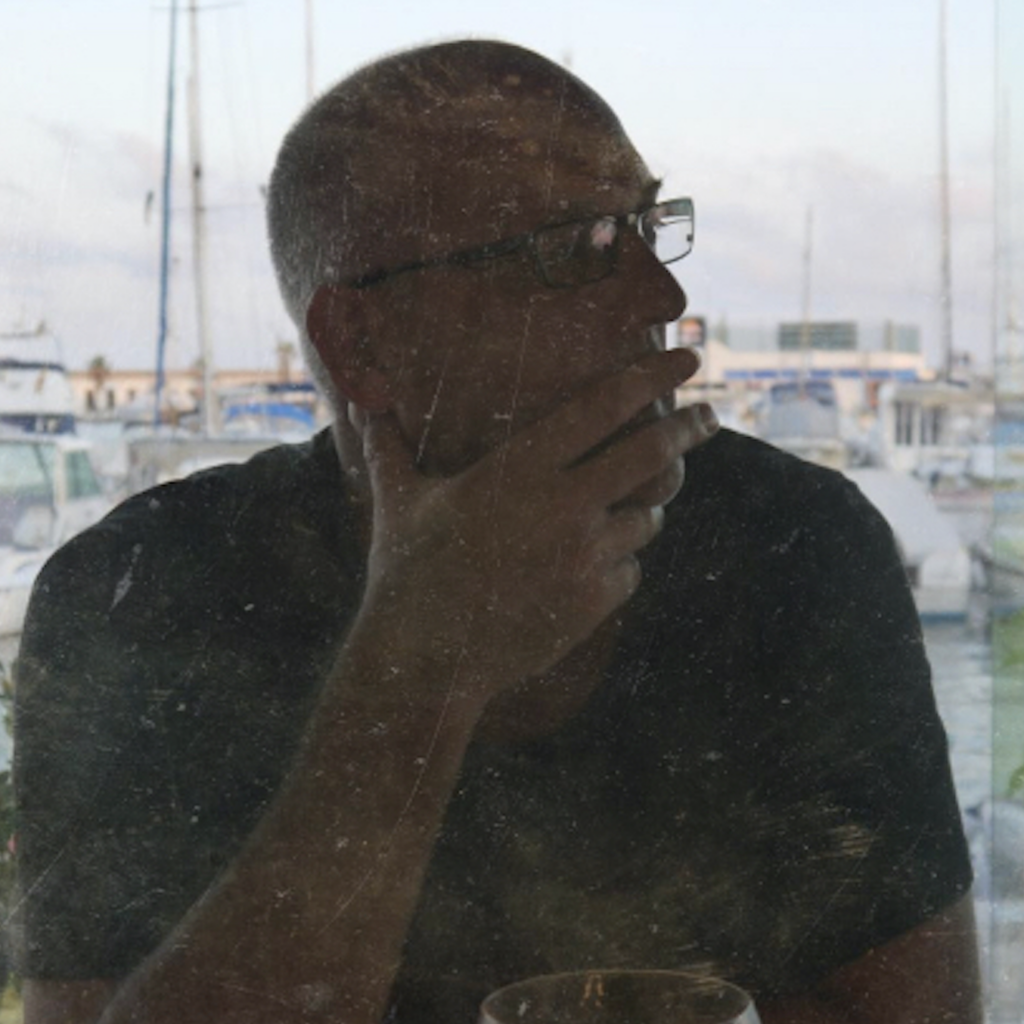
Kim Halliday
Composer & Musician
I’m a composer and musician with my own studio near Heathrow. My music is an evolving & revolving mixture of trip hop, reggae and film noir, designed to comfort and disturb in equal measure. As an award winning media composer & musician my scores have encompassed horror, comedy, drama, musicals and child birth, while my albums have been described as “Sonic Youth meets Bernard Herrmann” and “Face-Bashing All-Out Guitar Assault”. I studied Music for Media at the London International Film School, and I’ve been in the industry for over 30 years. Recently I worked on I Am Gen Z, an award-winning documentary directed by Liz Smith, and I’m currently working on three feature documentary films investigating our divided world.
My approach to any project is the same – my endeavour is to help the auteur to get the music they want for the project. Sometimes a filmmaker is very clear about what they want, and other times I might help to describe and articulate what that is. Sometimes there is budget for exactly what they want, other times we might have to compromise. In every case, though, my job is to understand their needs and to keep working until I do.
My experience includes a lot of low- and no-budget projects, and this has exposed me to areas of the film industry that aren’t strictly in the remit of the composer! I’ve been involved in music supervision, contract negotiations, promotion, PR campaigns, and many other aspects of the film making process.
I would like to be part of the Board of the DFC to help and support filmmakers to develop their projects in the most challenging of times. I have a background in training and governance, and I hope that experience, along with an understanding the obstacles of the post-production process, will enable me to help to contribute to our industry through sharing of skills, best practice and opportunities. I would propose and work towards gathering and sharing a wide range of online resources by and for film makers, hopefully also providing insight to other documentary supporters and fans.
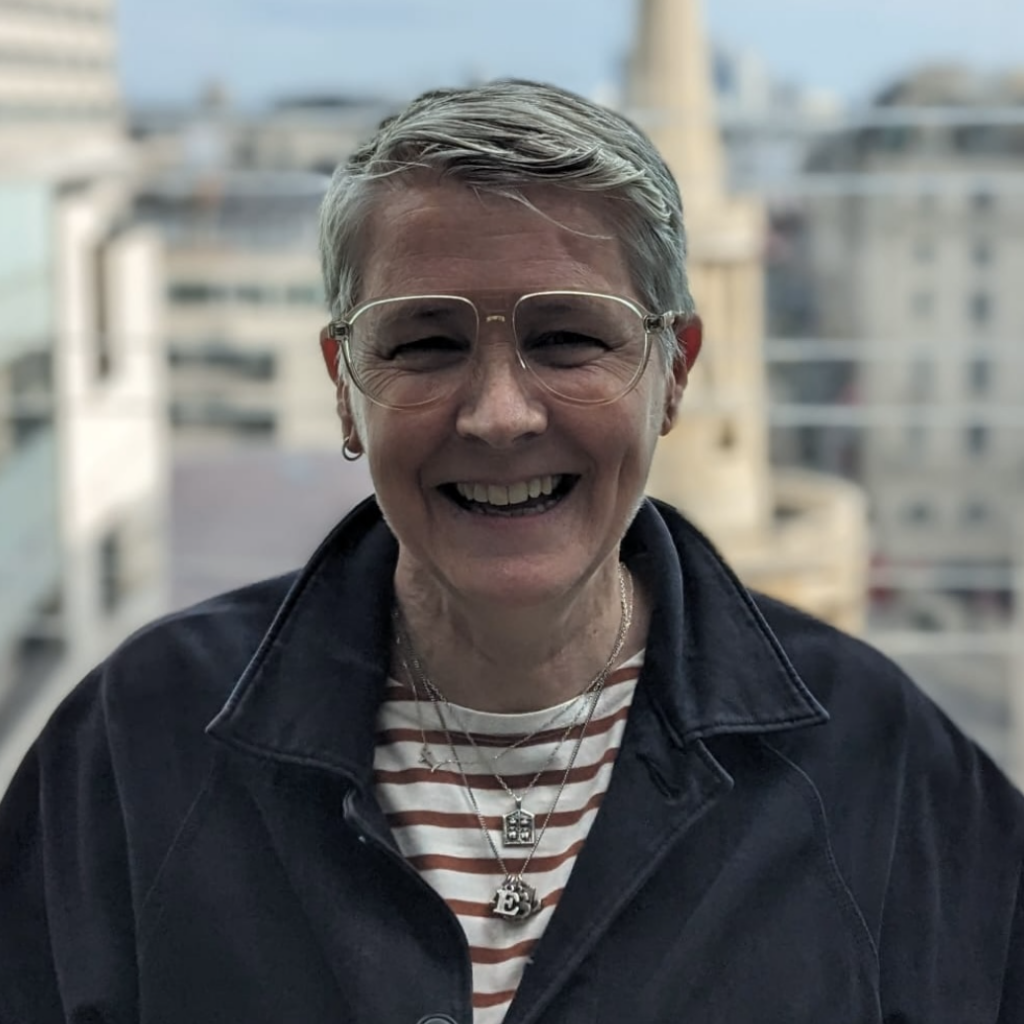
Emma Hindley
Lead Commissioning Editor – BBC Storyville
At this time of an economic and commissioning crisis in both factual content and cinema docs, it’s vital that the docs community comes together to support each other and lobby for change. Only by creating a cross industry organization like the DFC can we do this important strategic work. As a long time board member and co- chair of the Grierson Trust I was responsible along with Peter Symes, for setting up the first iterations of the now hugely successful Doc Lab scheme. I have also served on the BAFTA Learning & Inclusion panel and been part of many events supporting diverse doc makers. Diversity is part of my dna, as an out gender non- conforming lesbian who has worked in the industry for many years, I have seen the change that valuing diversity in its many forms can bring. But there is still lots of work to do. Since becoming the Strand Editor and lead commissioning editor of Storyville in February 2023, I am bringing all of my experience to bear in one of the most important feature doc strands in the UK and Internationally. I will bring all of that experience as well as my energy and ideas to the DFC to help establish it as the most important docs organization in the industry and to make sure that our ideas and plans are both enacted and celebrated in the UK and internationally.

Melanie Iredale
Director – Reclaim The Frame (formerly known as Birds’ Eye View)
As an admirer of the Documentary Film Council’s mission, and the democratic principles that underpin how it’s governed, I’m keen to throw my hat in the ring for one of the elected Board positions.
My work – and my interest in joining the Board of DFC – is driven by a passion for playing an active role in the struggle for equity through cinema, and a commitment to amplifying the voices of marginalised filmmakers in order that stories and voices from the periphery are seen, heard and recognised, and that everyone has equal access to those experiences.
Over the past 19 years, that work has primarily been in exhibition – as a film programmer, festival organiser, mentor and cine-activist.
Currently, and as of October 2021, I’m the Director of Reclaim The Frame (previously Birds’ Eye View) – a charity with a mission to champion filmmakers of marginalised genders, to build community for their work, and to advocate for equity in all film spaces.
Under my leadership, we have diversified our team & Board, amplified activity in the nations and regions, supported an increasing number of documentary releases, and taken our mission overseas through international collaborations. In re-branding – from Birds’ Eye View to Reclaim The Frame – and expanding our remit from one that platforms women filmmakers to one that supports filmmakers of all marginalised genders, we set our stall as a charity that strives to be increasingly inclusive, intersectional and transparent.
Prior to Reclaim The Frame, I was on the leadership team at Sheffield DocFest, as deputy director 2014-2021, and interim director 2018-2019. As deputy, I oversaw the industry programme (talks, sessions, marketplace) and the Alternate Realities/XR programme as well as the communications, HR, finance, and operations departments. I also co-programmed the festival’s Rhyme & Rhythm strand and its inaugural UK competition in 2019.
Alongside these roles, since 2019, I have actively sought opportunities to mentor LGBTQI+ women/non-binary documentary filmmakers because I consider myself part of a community that feels starved of authentic representation and stories on screen. One such project resulted in my exec producing, Rebel Dykes – a film that has brought the intergenerational queer & ally community together through its BFI/Bohemia distributed UK release, and at 100+ film festivals internationally.
My interest in questioning the various centres of power from the periphery comes from my own perspective as a queer, Northern, intersectional feminist, from a working-class background.
My lived experience influences my leadership style, which is highly collaborative, values led, and which I feel would lend itself well to – as well as learn from – DFC’s co-operative model of working.
This would be my first Board position, but with 17 years experience of reporting to various Boards, I understand the need to be engaged, active, supportive, to build and demonstrate trust, to bring long-term, strategic thinking and the right questions, and always with the mission of the organisation, the wellbeing of its staff, and the benefit of its members at its heart.
Thanks for your consideration,
Melanie Iredale (she/her) Sheffield, UK
@melanie_iredale
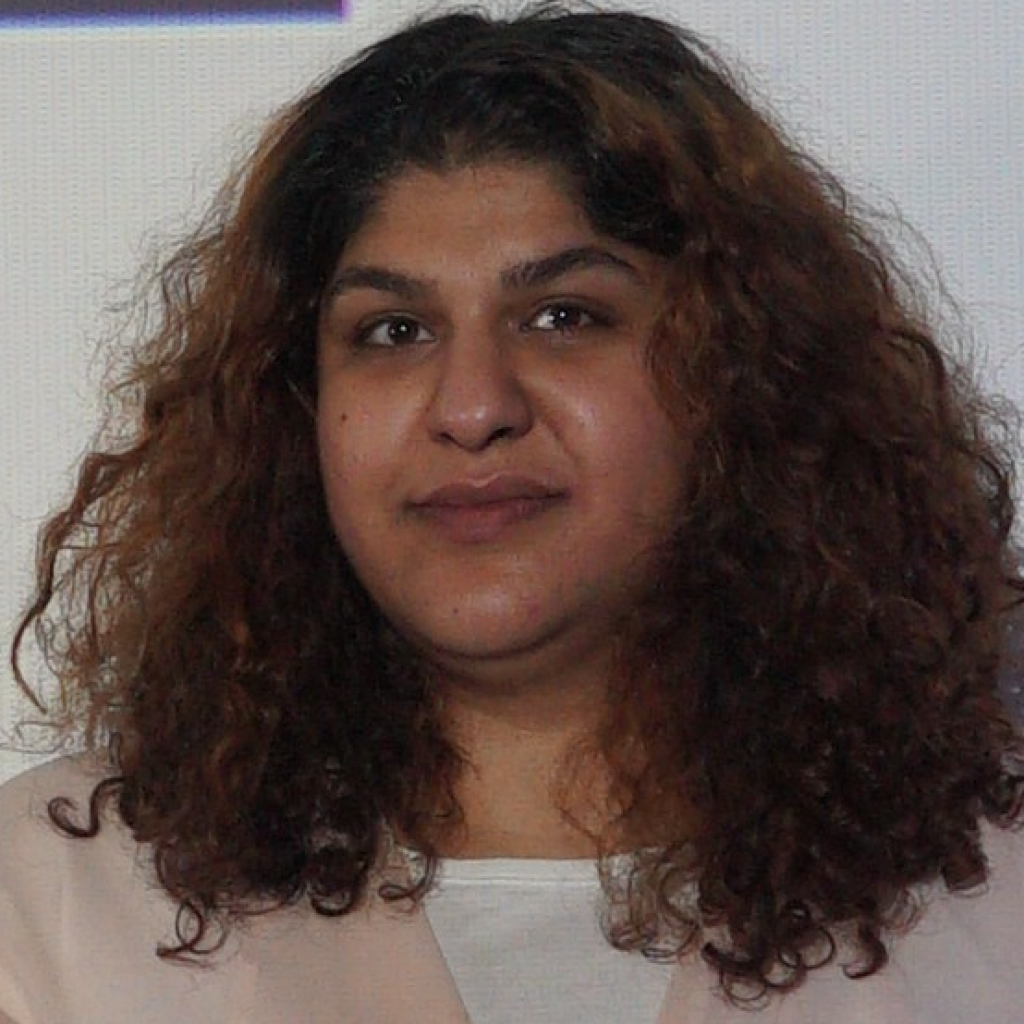
Isra Al Kassi
Co-founder & Director – T A P E Collective
I can’t think of a more collaborative section in film than documentary making, exhibition and distribution. I’m moved by the collective effort to come together with an join mission to independent documentary film. My path to being a champion of documentary film has been through the natural growth of my organisation T A P E Collective when we started distributing films in 2022. Our slate includes Cette Maison (Miryam Charles), Shabu (Shamira Raphaela), If the Streets Were on Fire (Alice Walker) and Bye Bye Tiberias (Lina Soualem). I’m currently in production on an experimental doc with Iraqi-British director Reman Sadani.
T A P E was founded as a grass-roots collective in 2014 with the view to bring underrepresented films from the festival circuit to the UK. Its growth includes production, distribution, teaching, writing & curating. As part of this growth my mission is to demystify the industry, I operate with the wish to be as transparent and helpful as possible; recognizing the possibility for growth and success through collaboration.
I continue to find myself drawn to documentaries, often collaborating with documentary filmmakers, and distributors. I wish to stand for election for the DFC board so that I can continue this work, bringing my experience of strategic growth, collaboration and working across production, distribution and exhibition to a larger platform to greater impact.

Leslie Lee
Producer/Director
I am honored to nominate myself for The Documentary Film Council board. As a Chinese-American, London-based producer/director, my career has been defined by a dedication to uncovering compelling stories and amplifying diverse voices within the documentary and factual TV landscape. With a diverse portfolio spanning true crime to food-related content, including notable credits such as Working With Weinstein (Channel Four, shortlist Grierson Awards 2018), and Superleague: The War for Football (Apple TV+, 2022) I bring a wealth of experience and expertise to the council’s mission.
In addition to my professional endeavors, I am deeply committed to giving back to my community through more than 20 years of volunteer work with the Central London Law Centre and The Monitoring Group. As a Gala Coordinator/Fundraiser, I organized biannual fundraisers for the law center, including dinner/auction events for hundreds of guests. I collaborated with donors, wrote press materials, and liaised with venues to ensure the success of these vital fundraising initiatives. This experience underscored the significance of community engagement and social impact, values that align closely with the mission of the Documentary Film Council.
Throughout my career, I have leveraged my background as a former print journalist to unearth stories that resonate with audiences worldwide. From exploring the complexities of true crime to delving into cultural narratives surrounding food and identity, I have honed my skills as a great people- and story-finder, consistently delivering thought-provoking content that sparks dialogue and engagement.
In addition to my work in documentary and factual TV, I am currently in the process of developing my first feature documentary, You Won’t Kill Me, a project that has been recognized for its innovation and potential impact within the industry.
My dedication to equity, diversity, and inclusion extends beyond my creative endeavors and into my advocacy work within the industry as a BAFTA member and mentor. I am deeply committed to championing representation and fostering an inclusive environment where all voices are heard and valued. As a board member, I am dedicated to ensuring that the Documentary Film Council reflects the rich diversity of voices within the documentary filmmaking community and actively promotes fairness and respect for all individuals.
Furthermore, I fully embrace the responsibilities outlined for board members, including setting strategic direction, ensuring compliance with governance requirements, and fostering a culture of transparency and accountability. Drawing on my legal training and experience in strategic planning, financial management, and stakeholder engagement, I am committed to contributing to the council’s long-term success and sustainability.
I would be honoured to be considered for this pivotal role within the Documentary Film Council. If elected, I pledge to leverage my skills, experiences, and passion to advance the council’s mission, support its members, and advocate for the transformative power of documentary storytelling.
Thank you for considering my candidacy. I am excited about the opportunity to serve and contribute to the vibrant documentary filmmaking community.

Delphine Lievens
Distribution Consultant – Freelance
I was excited and encouraged to see the formation of the Documentary Film Council last year, and have followed the work it has done to speak up for the independent documentary sector with interest, including signing their open letter to the industry last year. I think this letter was a bold and much needed move and it also prompted me to become a member of the DFC.
The aims of the DFC align closely with my own thoughts and feelings about the sector. Throughout my work, I endeavour to support UK independent documentaries however I can. I want to see the sector able to thrive as a truly inclusive space that has the ability to reach wide and diverse audiences. Working in film distribution means that I see some of the issues that face independent documentaries first hand. For those that manage to navigate the process of raising the funds to produce a documentary, putting that work in front of an audience is yet another difficult challenge.
As someone relatively new to the world of freelancing, the issues surrounding security for fellow freelancers in a challenging landscape for independent film production needs vital attention, intervention and support. I think it is critical for us to ensure diversity across the sector in both the stories we tell, and the people who get to tell them. Making independent documentary a viable employment option for those from a variety of backgrounds is a key element to this.
My passion for independent documentaries has grown throughout my time working in film distribution. From getting to experience the whirlwind of the AMY (2015) release as a trainee at Altitude Film Distribution, to most recently supporting the theatrical release of BIFA winning If the Streets Were on Fire through my work distributing films with T A P E Collective, I truly believe that documentaries form an integral part of the UK independent film landscape. They are essential for giving a diverse range of British filmmakers the opportunity to share authentic stories that can excite, inform and generate conversation across audiences in the UK and beyond. Naturally, I also support the need for independent documentaries to screen in cinemas, as a way to celebrate their artistry and maximise the audiences that get to see them.
I believe that to address these challenges in the sector we need to work collaboratively to advocate for ourselves, including communicating more openly with one another, and I am keen to play a role in encouraging this by joining the DFC’s board. I have previous experience on the board of Live Cinema UK, an organisation that champions immersive cinema, and as such I am dedicated to finding ways to promote variety and diversity in the types of film content available to UK audiences. I am dedicated to continuing to work in the independent documentary sector, bringing compelling and important films to audiences that deserve to see them.

Ben Lowe
Producer/Director – High Performance
I believe passionately in our world of documentary-making becoming a more equal, diverse, transparent, fairer, happier place for anyone wanting to tell stories. In 15 years as a professional – starting through a traineeship then internship and working my way up to producing and/or directing six acclaimed feature documentaries since 2019 that have enjoyed film festival premieres and big screen releases – I have had both brilliant and brutal experiences of our industry. Ultimately I care about championing my peers, driving positive change, and genuinely contributing towards DFC being an incredibly important voice.
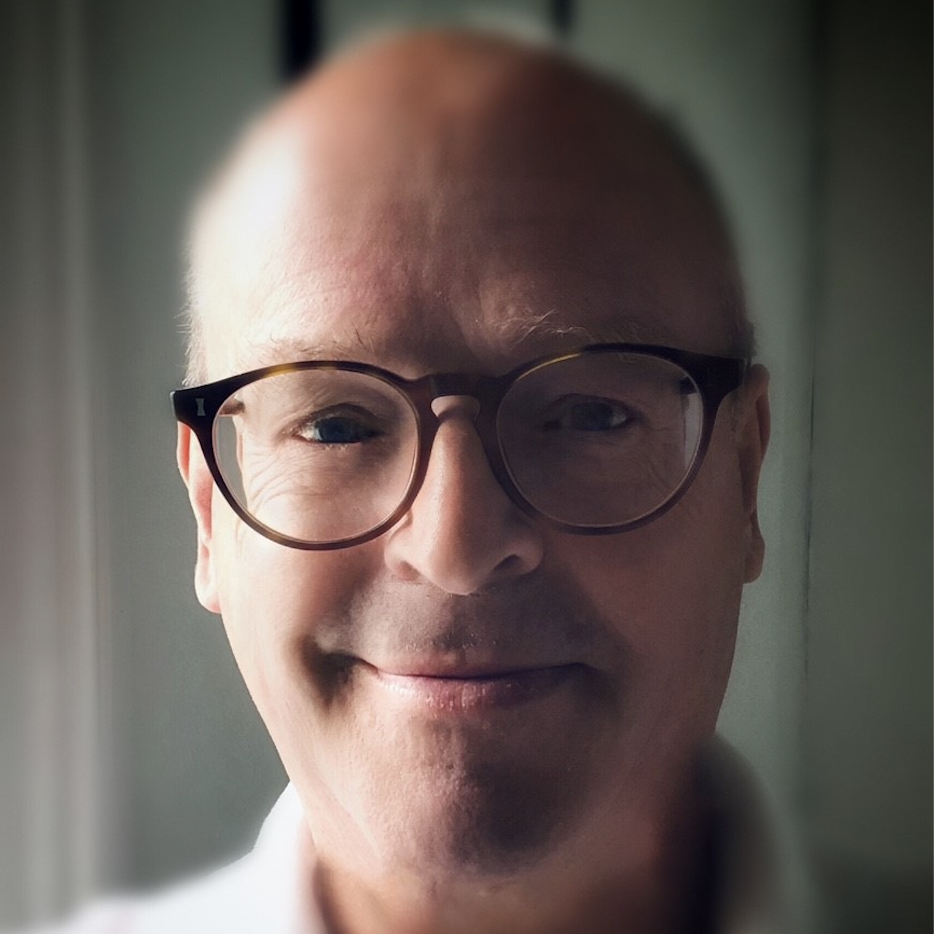
Richard Melman
Executive Producer/Producer
I have been lucky enough to work in the film and television industry for my entire career. I learned my trade in the camera department, ending up as a freelance DoP, then moving on to produce and direct. I became a channel director, launching Sky Arts (Artsworld as it then was) and going on to run a variety of channels, before returning to production as an executive producer.
Now, my focus is championing the next generation of factual filmmakers, from all backgrounds. The documentary world is at a crossroads. While more platforms exist for screening films, securing funding and recognition is increasingly challenging. Every day brings new hurdles, and with the rise of AI, audiences are questioning the very nature of truth in documentaries.
Now, almost more than at anytime in the past, documentary filmmakers need all the support they can get. Our country lacks a strong, reliable voice in factual programming, and the Documentary Film Council has the potential to fill that void.
I’ve been lucky enough to work with some of the world’s greatest documentarians on award-winning productions for the major SVOD streamers, national broadcasters, and a large number of international broadcasters. As an independent filmmaker, I’ve also scrambled to put together enough money just to get a film made because I felt it should be made. If there is anything I can do to “put back” into an industry that I really care about, I am happy to do so.
My skill set, hard won, allows me to believe I would be asset to the board and to the documentary community as a whole.
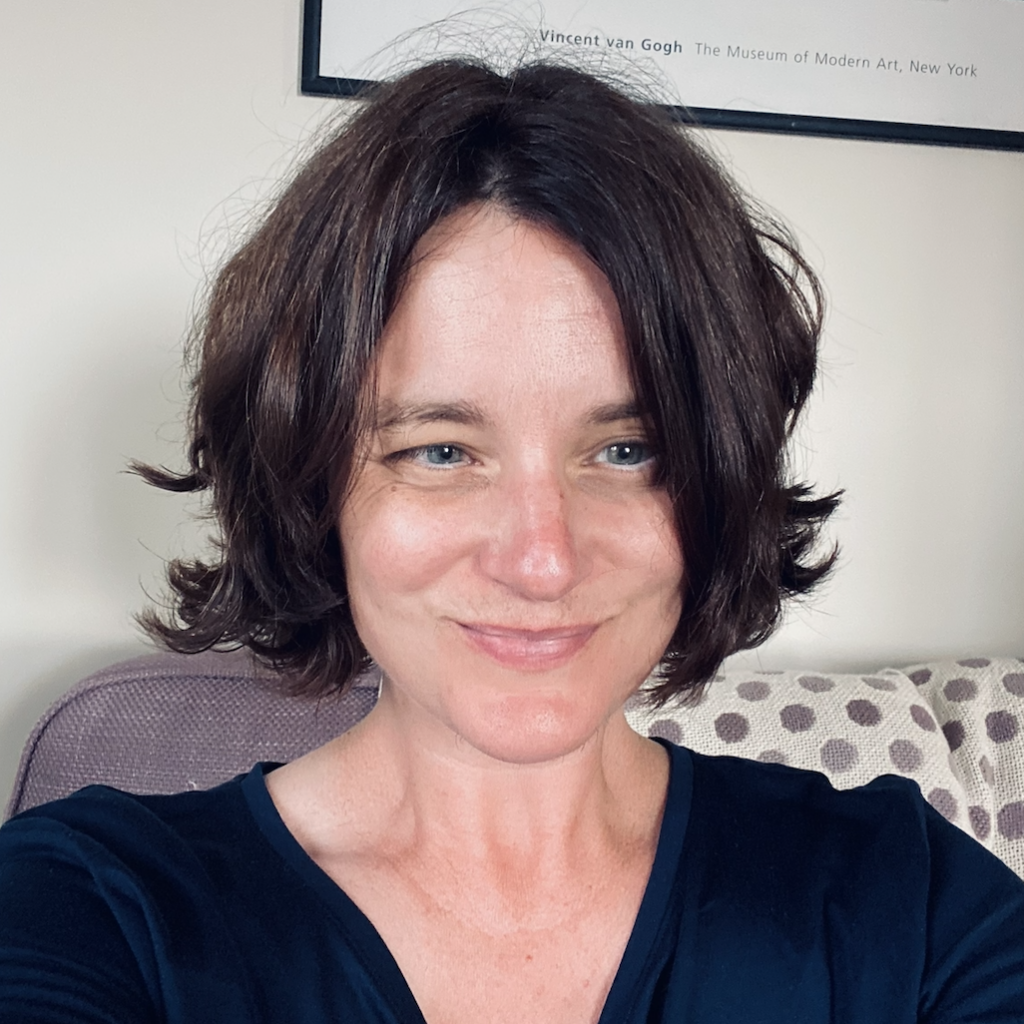
Christine Morrow
New and Emerging Talent Executive – Northern Ireland Screen
I would like to serve on the board to represent the needs of new and emerging documentary filmmakers both from Northern Ireland and from a regional perspective generally. I have worked with new factual filmmakers on the Bridging the Gap factual scheme with the Scottish Documentary Institute for a number of years. I would like to bring that knowledge to the board and work with other factual bodies and filmmakers to help factual filmmakers bring their projects to fruition. I have worked with Northern Ireland Screen in talent development for 20 years and I would like to build on that experience and bring what I have learnt to the board of the Documentary Council.
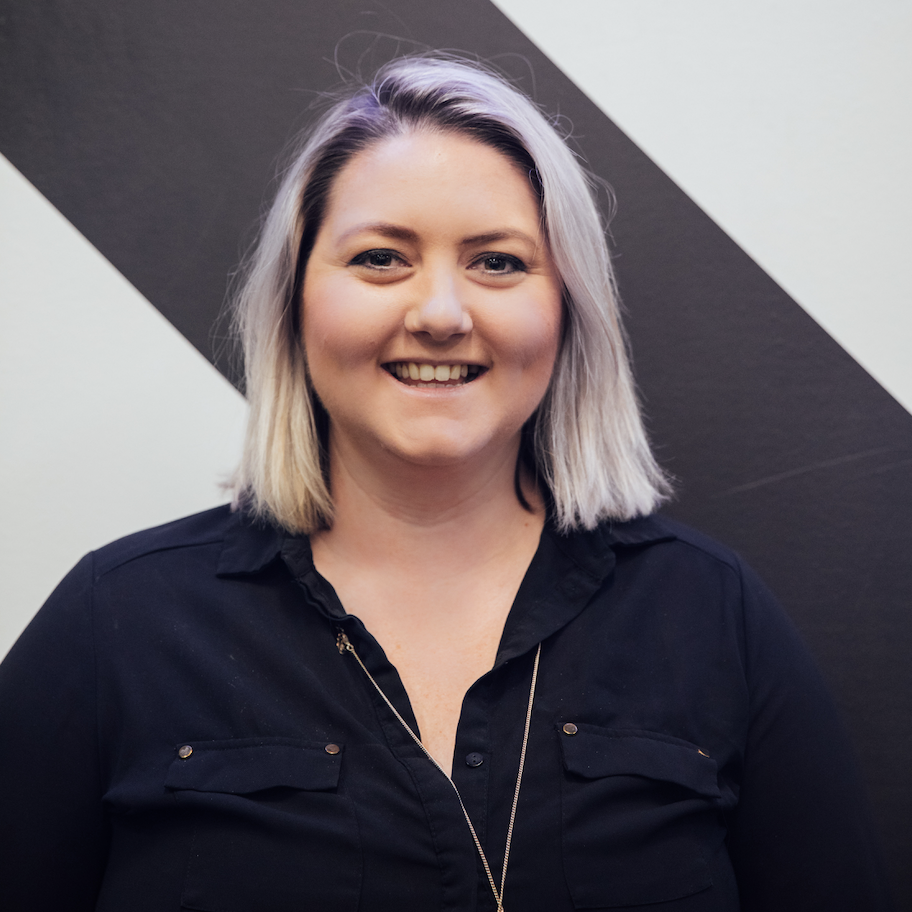
Sarah Mosses
Founder & CEO – Together Films
I am a member of the current DFC board and have been involved in this conversation since the early days of the UWE research project. It has been wonderful to see the formation of an organisation aiming to improve the sector, especially within such challenging times. There is a vital need for better coordination and communication in our industry, alongside growth in the external value perception of what the documentary sector provides. I have contributed insight into the marketing and sales side of the industry, and ideas on fundraising options for the organization, and aim to see this grow as we enter year two. I would be proud to be a part of changing our industry for the better and hope to continue as a board member championing the issues and conversations that our members see as the most important. This kind of forum only works when we listen to the viewpoints of all stakeholders, and it’s important that as a board we work for you.

Andy Mundy-Castle
Director/Founder – Doc Hearts Limited
I am honoured to submit my candidacy for the Documentary Film Council’s (DFC) Board of Directors, fully aligned with the mission and responsibilities outlined in the document.
The DFC’s mission to enable effective, coordinated action, foster transparent communication, and build a democratic member-led organization resonates deeply with my values and aspirations for the documentary industry. As the Founder of Doc Hearts Limited, I am passionate about advancing the independent documentary sector and ensuring its representation within the wider screen industries at home and abroad.
I am committed to working collaboratively with colleagues across the sector to develop collectively-held policy priorities that address the key issues facing the UK independent documentary community. My experience in strategic planning and advocacy will enable me to contribute effectively to this important aspect of the DFC’s remit.
The document emphasises the historic opportunity for the documentary community to elect its own representatives, underscoring the importance of accountability and representation. I am dedicated to upholding the principles of democracy and inclusivity, ensuring that the DFC remains accountable to the community it serves.
Serving on the DFC’s board is not only an opportunity to represent the UK documentary community but also to advocate for improved conditions in our sector for everyone. I am committed to promoting diversity, equity, and inclusion within the organization and championing the voices of historically marginalized backgrounds.
While the DFC is currently volunteer-run, I am fully supportive of the intention to compensate freelance board members for their time as soon as resources permit. My primary motivation for serving on the board is driven by a genuine desire to contribute to the growth and development of the documentary industry, rather than financial gain.
In conclusion, I believe that my skills, experience, and dedication make me well-suited to serve on the DFC’s Board of Directors. I am excited about the opportunity to work collaboratively with fellow industry professionals to advance the goals of the DFC and elevate the UK independent documentary sector.
Thank you for considering my candidacy. I am eager to contribute to the important work of the DFC and advocate for the documentary community.

Franky Murray Brown
Independent Filmmaker
As reinforced by the Keeping it Real report, the independent documentary sector is in crisis and in urgent need of systemic, structural and strategically managed change. In the crowd at the DFC launch event in Sheffield, I began to feel this was possible. Surrounded by hundreds of members of the documentary community, the energy, passion and expertise was palpable. The DFC presents us with an opportunity to harness that power and to work collectively to stabilise and improve our industry. I want to contribute to this, fostering a more cohesive and supportive community and using my skills, experience and optimism to help safeguard the sector. Joining the DFC’s board is a unique chance to do so.
I have spent the last five years co-directing and co-producing an independent feature documentary (Dalton’s Dream) alongside filmmaker Kim Longinotto. The experience was invaluable, but also sobering. We applied to numerous funds, pitched at Meet Market and took every PSB and potential investor meeting we could, but were unable to secure any funding until three years into filming. The documentary has since premiered at Sheffield, played at festivals around the world and will be broadcast soon as part of BBC Storyville. But I would not have been able to make the film without working concurrently in TV development and production to provide a source of income throughout. The process showed me firsthand how chronically under-funded and under-supported the independent documentary sector is when compared to other corners of the industry. It also taught me a great deal about the festival circuit, grew my network considerably, introduced me to countless filmmakers in similar positions, and reinforced my total commitment to independent documentary making.
Through mentoring for Screenskills, BECTU and Creative Opportunities, I continue to see how difficult it is for young people from under-privileged and under-represented communities to break into the sector. I am also aware of the challenges those already within the industry face when trying to sustain fulfilling careers. I see the forming of the DFC as an exciting opportunity not only to represent the best interests of the documentary community, but to work to remove the obstacles that makes actually joining the community difficult for so many.
The Keeping It Real and Making It Real reports were a positive step towards finding solutions to these problems. I believe that if, as members of the DFC, we bring together our passion, knowledge and voices, we can begin to carry out their recommendations and cultivate meaningful change.
I have eight years of experience in the industry, including budget management, and understand the responsibilities associated with joining the Board. As a board member I would use my experiences, stamina and enthusiasm to help build momentum, ensuring that the DFC remains accountable to the people who will continue to give it meaning – the hundreds of brilliant members who first congregated in Sheffield last year.
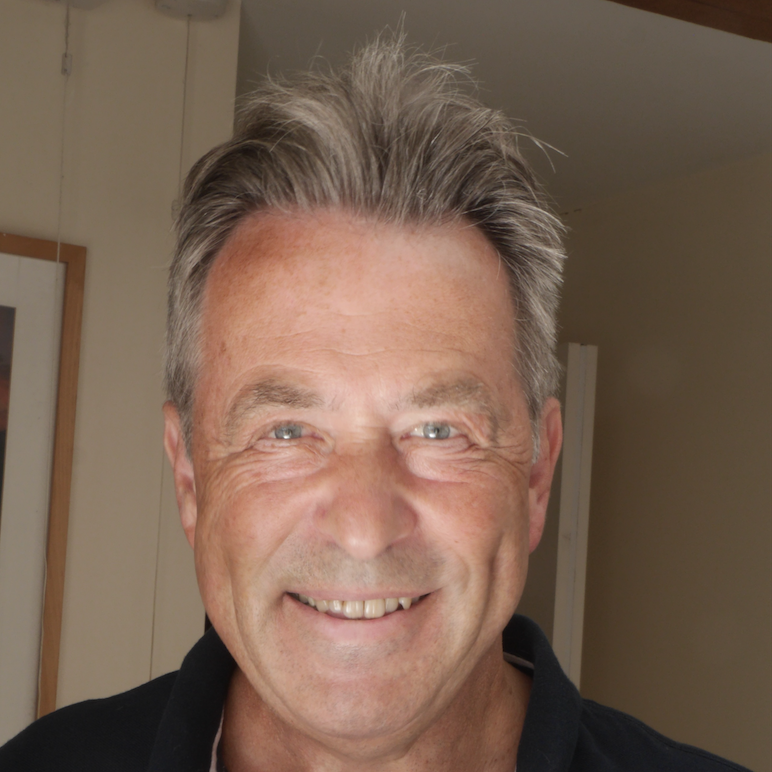
David Pearson
Director, Producer & Executive – Storyspring
I stand in this election to help prevent documentaries from becoming an endangered species. We need documentaries more than ever in our volatile world, and I can contribute to the DFC with decades of professional non-fiction experience, managing more than 100 docs and directing over 30 full-length films, with BAFTA & Emmy Nominations, Grierson, RTS, BIFA awards; aided by my wide industry contacts in the UK and abroad, and previous experience as a film board member.
Documentary finds itself trapped in the perfect storm affecting the wider film & TV industry. This has reduced TV commissions, funding, and made income from film exhibition more unstable than ever. Non-fiction filmmaker income has plummeted, breaking sustainability. Access to low-cost digital film gear and the global web has provided opportunities and benefits, but paradoxically, it is harder now than at any time in the last fifty years to build a sustainable documentary filmmaking career. We need to build paying audiences. The DFC must help innovate documentary business models, funding and exhibition. To invigorate the non-fiction community, we need sustainable filmmaking, improved revenues, and policy revision among funders, film agencies, streamers, exhibitors, and broadcasters. We must identify smart solutions for progressive change.
We need a code of best practice to deal with AI’s threats before it damages trust in factual films and their use of archive. Audiences have to believe documentaries are more reliable than social media and other factual output, if they are to survive with scale and ambition.
I am aware of the mountain facing us. The DFC needs to secure funding to operate at a level needed to have an impact, to recruit more members and high-profile filmmakers. There are system roadblocks to avoid or jump, and alternative routes to build DFC cross industry support and results. My previous board member experience will help and includes the Sheffield Documentary Festival founding committee, Skillset Wales Advisory Board, and the Screenwriters Festival.
My management experience in independent film & TV production companies, and as a BBC documentary executive, includes budgets, international co-productions and cinemas releases. I have trained documentary directors and self- shooters at the BBC, the Independent Training Fund, and Screenskills, and taught documentary filmmaking at BA & MA level, while Lecturer in Screen Practice & Industry, University of Reading. I have a passion for making documentaries. My current documentary, a cinema short, Last Kings Of Soho, which I have directed, is in post-production.
The problems facing documentary’s future are complex and serious. There are no simple answers. We do not control market swings, supply or oversupply, or funders’ decisions. Nor do we control gatekeepers’ policy and spend, their perception of audience tastes, or exhibition access and traditional revenue models. However, we can, and must, communicate, influence policy decisions through evidence and persuasion, and look and push for innovative solutions. I will be happy to help fight our corner.
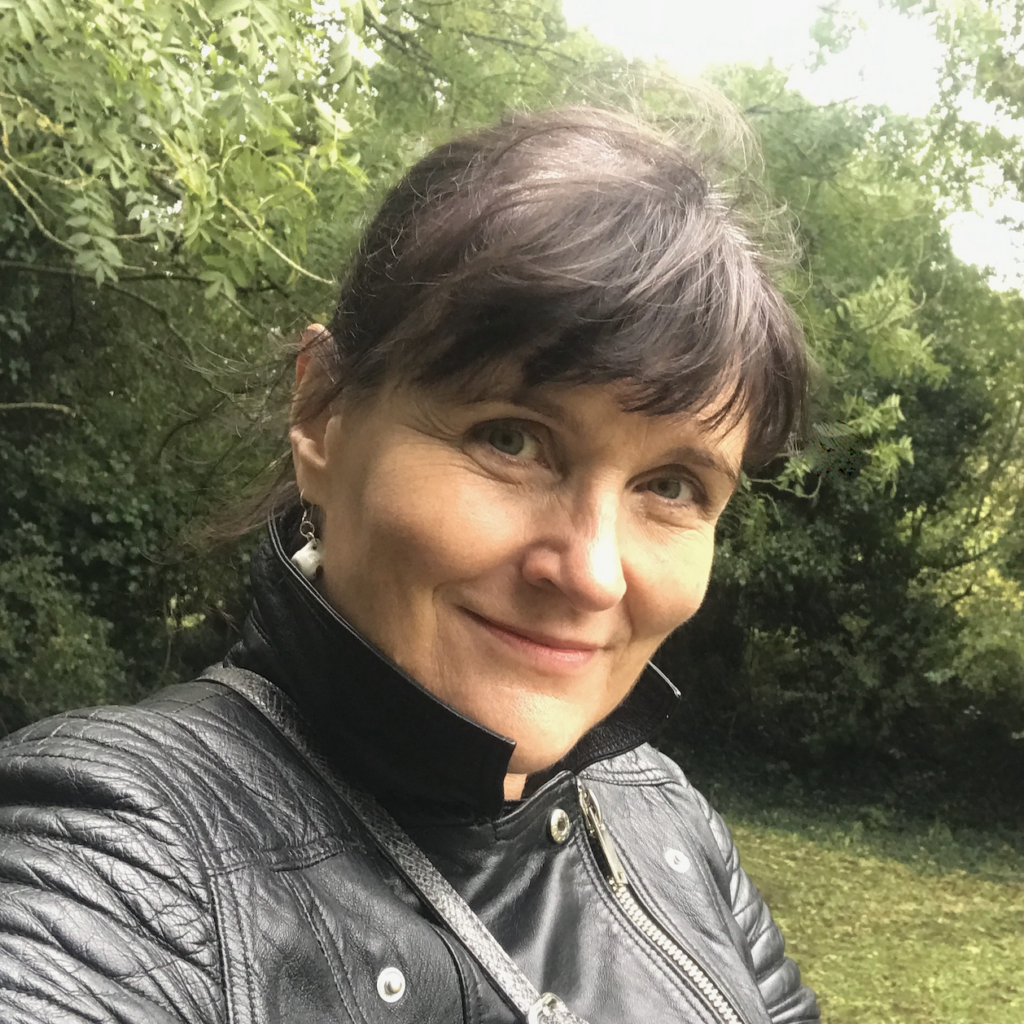
Jane Ray
Artistic Director – The Whickers
I passionately believe that quality independent documentary is essential for an engaged free society. Here in the UK we have tended to take this for granted, but Brexit, COVID and The Cost of Living Crisis have shown us that this laissez faire attitude could be the death nell of the industry. This is where I see the DFC coming in. I have been part of the UK Docs Group, the Making It Real survey and the Keeping it Real report and this feels like the next step. I would be lying if I said I ‘absolutely love board’ work, but I have a lot of experience of it from the BBC (10yrs +) and EDN (2 yrs) and feel that I have some useful knowledge and knowhow to pitch in.

André Singer
Chief Creative Officer – Spring Films Ltd
I am fully behind a board that incorporates all aspects of our complex and challenging industry. One part of that I would suggest should include experience. Mine is an involvement in documentary for fifty years in which I have been researcher, producer, director, executive producer, commissioning editor, company executive, creative director and broadcasting executive. I have worked for various independent companies, including executive roles in the Discovery Channel, the BBC and with Canadian broadcasters.
Perhaps, you might say, time to hang up the spurs; but that isn’t happening and I find my involvement in all aspects of creative documentary filmmaking still as intense and rewarding as ever. The skills on offer to DFC are those accruing to long-term participation in creative, financial and organisational aspects of the business. Having been part of the creation of Documentary Campus, a good knowledge of the European structure has always proven useful. As the European Head of docs for the Canadian Alliance Atlantis Group, working with Canada for many years added transatlantic experience. And as a producer of films for US broadcasters (A&E, HBO, PBS) and the new wave of streamers, including Apple, Netflix, more recent dealings with the giant US market have been enlightening.
The documentary has always been ‘under threat’ – and I remember times when despairing articles would lament the imminent demise of the whole genre. Today the market place is particularly fragile but certainly the documentary form will survive, and survive well. It will be incumbent on organisations like the DFC to nurture our genre , but also to find new and ingenious ways of raising finance and protecting the creative individuals that provide the passion to drive our productions forwards. I hope I can still lend my experience to be a part of that.
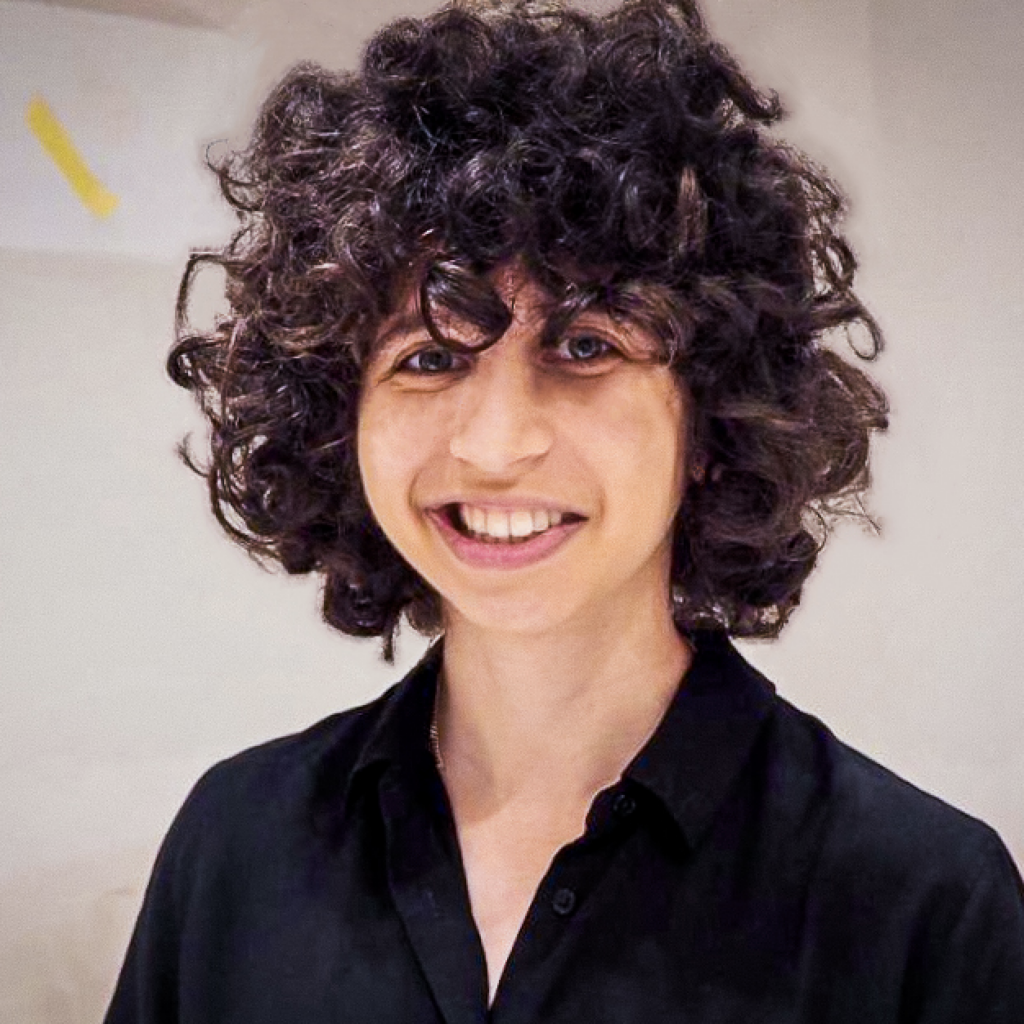
Hannah Skolnick
AP / Director
I wish to serve on the DFC board as I can bring valuable experience and perspective to the role.
A bit about me – I am a self-shooting director from London, with a curious and empathetic outlook. I currently work across both broadcast TV and independent documentaries. Projects I have worked on have been broadcast on the BBC, ITV, Channel 4, and Channel 5, and have examined ideas of religion and sexuality, political and social history, belonging and community, gentrification, alcoholism, and sexual abuse. I have an MA in Directing Documentaries from the National Film and Television School (NFTS) where I learned my craft and directed and produced several short films.
A bit about my experience – I am relatively new to the industry and have been working for 5 years. I have gained experience across the spectrum making documentaries for larger production companies such as ITN Productions, and smaller indie companies such as Flicker Productions, as well as completely independent shorts. The most recent of which was screened at Sheffield DocFest 2023 and in selection at Kendal Mountain Festival 2023.
A bit more about my experience – I also have experience serving in a leadership role similar to the DFC board. I am on the branch leadership team at the North London Branch of Samaritans, where I am the Head of Shift Support. This role ensures ongoing support for the over 200 volunteers in the branch. My role is crucial to maintaining the volunteers’ ability to continually pick up the phone to those in distress and despair, without burning themselves out. My experience managing this vital aspect of volunteer support for Samaritans has shown me the value of protecting the mental health of those who listen to the stories and trauma of others – a skill that is highly relevant for all who make documentaries.
The DFC has made mental health a priority and has a Mental Health Committee in place – I believe my experience would help bolster and continue this good work.
Funding for independent documentaries is at a historic low, and this is making it harder than ever for unestablished voices to be heard. Of course, the DFC Board must contain those with the weight and knowledge of vast experience in the industry, but it should also give voice and support to emerging talent. I am representative of this and would make it a priority if I was elected to the DFC Board.
It is incredibly exciting that for the first time in UK documentary history, we can elect our own representatives. I am excited to be able to stand at this momentous time.

Mita Suri
Film Programme Manager – Sheffield DocFest
As an immigrant to the UK who has also lived and worked in multiple regions as well multiple other countries (Egypt, India, China, Japan), and as someone who has worked in other sectors before the documentary film industry, I have a unique lived experience to contribute to the strategic direction of the Documentary Film Council.
My career didn’t start in documentary films. My original focus was social-impact through public health, alongside nurturing youth talent. What drew me to independent documentary films was this connection to social impact that was so ingrained in the films, filmmakers and the wider community.
The importance documentary films put on aspects such as co-creation and non-extractive practices is personally highly meaningful to me. This is why I want to support an organisation that advocates for the UK independent documentary industry.
For the last five years I have worked at the largest and most influential documentary film festival in the UK. This means that my job and ethos are directly to create space for open conversation, facilitating talent and creative innovation, and collaborative communication in the documentary industry. As this is in keeping with the purposes of the DFC, I know I will be an asset to take these goals forward.
My personal motivation also comes from my background and sharing this transformational effect documentary films can have on individuals and communities. I have been engaging with this through grassroots efforts, from working with Sheffield City Council’s local libraries to set up community screenings within their own neighbourhood, extending it through schools and the local universities as well as advocacy groups.
Developing audiences and engaging in non-conventional exhibition strategies is a crucial part of increasing the establishment of documentary films in the country and an action I would bring towards the mission of the DFC.
I am confident in the connections I can bring, within the UK and internationally, the skills I have in programming documentary films and assessing projects in a nuanced manner, and providing resourceful input into the governance of a charity. Working at DocFest, interacting with thousands of filmmakers and industry representatives, I have been centrally placed to witness the changes in the documentary sphere. It would be an honour to have the opportunity to play my part in implementing Documentary Film Council’s mission.
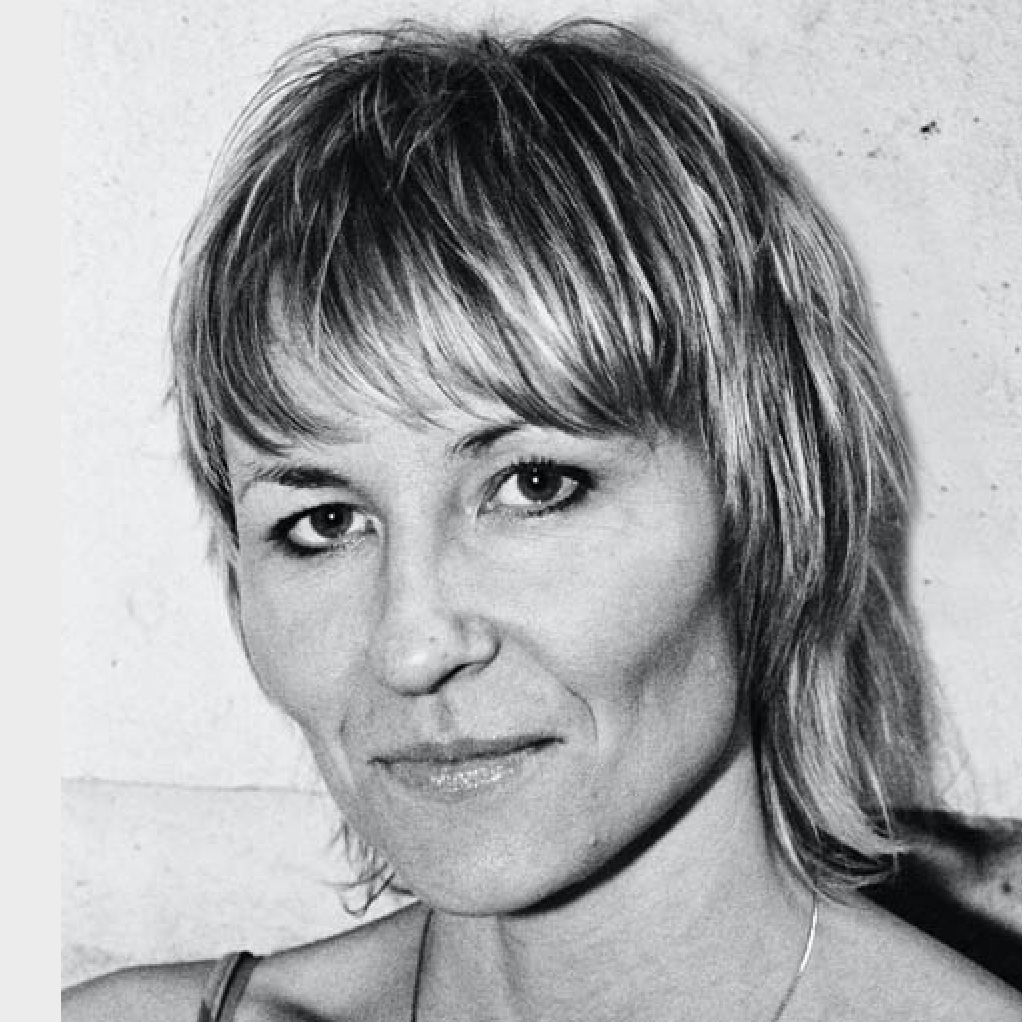
Maxine Trump
Director – Help Films
I am very passionate about increasing the stability of the documentary industry. I think the DFC as a cooperative is unique in it’s representation of all arms of the business which makes it a more powerful voice when negotiation or driving through new initiatives. I was thrilled to learn about the cooperative’s goals and want to help ensure the strategic direction of the DFC. Having now met with Steve and Emily and read the Assembly report from Sheffield 2023, much of the DFC’s ambitions align with my own. I work helping other filmmakers as well as making my own films, so am at the coal face daily. I feel well versed with the myriad issues we face as a community. I have worked as a moderator at many film festivals, lead workshops and write a lot about the industry. Representing filmmaker issues at the DFC board level feels like a natural progression of what I do every day. As a board member I would work hard to realise the vision and goals of the DFC, and hope (and pray) that we can get similar protections for our work that Journalists have worked hard to win for their industry. I hope to work with you all in the future.
Short bio – As a story consultant I most recently helped the director of the Sundance-winning Daughters write their first treatment and budget for Dance With Dads. My films have covered miriad stories and issues. My feature documentaries are on Amazon Prime (To Kid or Not To Kid?, Musicwood) I have made series and Crime dramas for Discovery and short documentaries for the US networks: PBS, TNT, Sundance Channel, BBC and many more. Before emigrating to the US I worked for the BBC in London as a development executive for scripted comedy and feel there isn’t enough comedy in documentaries. We all could do with a laugh. In the states I was a Sundance instructor, having devised and implemented courses for their documentary team. I’m the author of: “A Documentary Filmmakers Roadmap” and the recent “Making A Scene in Documentary Film”. I’m now back in the UK and love being approached by filmmakers to help them construct their story.
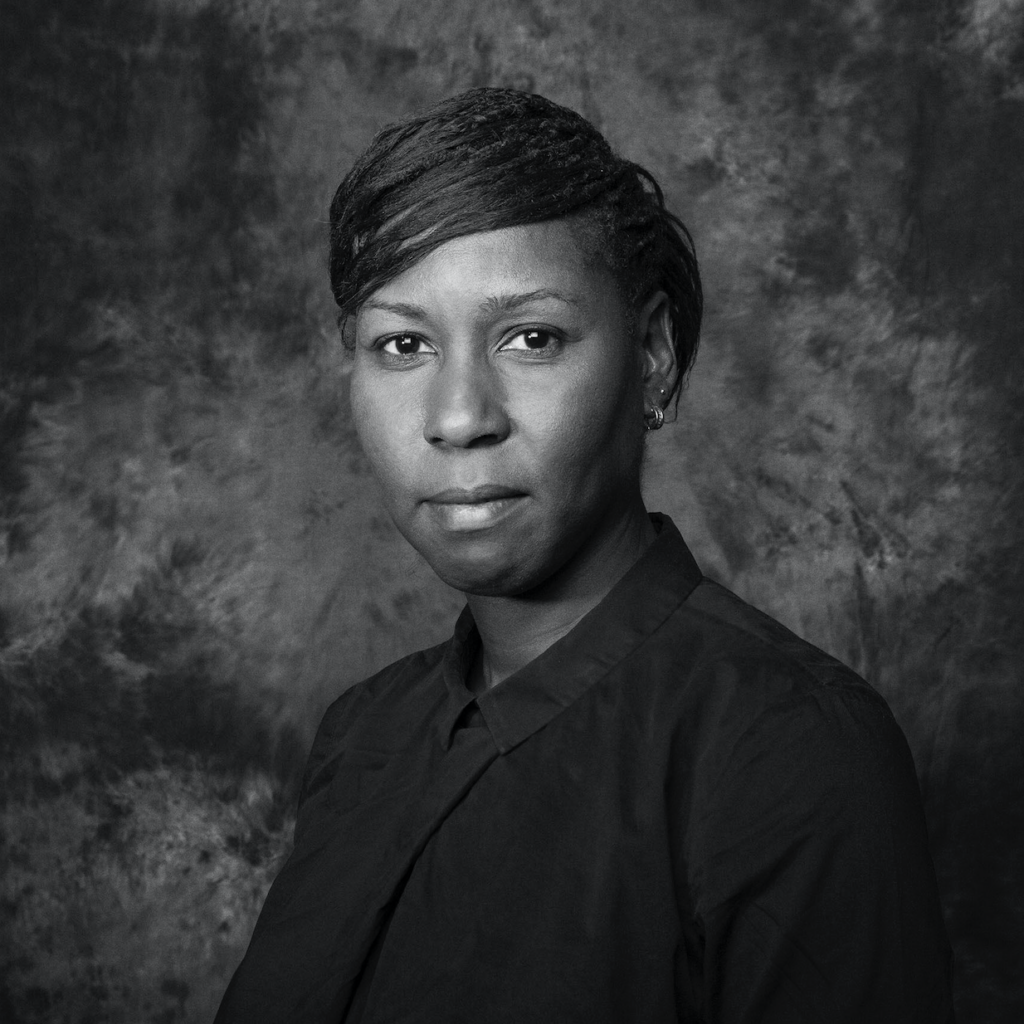
Dionne Walker
Film & TV Producer and Doc Maker – NMS Film & TV Productions Ltd (Company Director)
I’m a twice BIFA Producer, BAFTA nominated producer, director and, or writer. My theatrically released project, as writer- lead producer, was the critically acclaimed feature-length documentary The Hard Stop (2015).
My background lies in founding and heading up the film unit in Camden that included producing year on year a series of short films with UK filmmakers in partnership with national media Curzon, Guardian, French Institute, Argent, Wellcome Centre, Screen Nation, Black Filmmaker Magazine, Bloomsbury Centre & BAME Team, King’s Cross & St Pancras Dev and other sponsors.
Also, as head of the one-stop agency in 1996 and in partnership with Mayor of London’s backed Film London we established ease of access to filming across the 33 boroughs of London for local and international productions including news & documentary crews.
Past References/Collaborators: Ben Roberts, Ceo, BFI | Lizzie Francke. Ex-Senior Executive/Editor, BFI & Head of Feature Film at NFTS | Briony Hanson, Director of Film, British Council | Tabitha Jackson, Ex- Head of Documentary/Artistic Director, Sundance Institute | Margaret O’Brien, British Museum | Michael Stewart, Founder of Open City Documentary Festival | Natalie Brett, Head of London College of Communications, and Pro Vice Chancellor, UAL | Lara Anderson, Head of Screen School, London College of Communications | Aisha Richards, Teaching Within, University of the Arts | Kristin Feeley, Director of Labs, Sundance Institute | O’Neil Lawrence, Chief Curator, National Gallery of Jamaica | Gaylene Gould, former Head of Cinemas, BFI | Jobeda Ali, Producer/Bloomsbury | Hermann Djoumessi, Producer, Head of the Chinese Centre, Camden Islington Youth Action Partnership
Additional information: I’ve been invited to show my short films as part of the Break-Out shorts festival as well as the Pinewood Lift-Off Festival. I’ve also submitted to the prestigious Marche Du Film Short Film Corner, We Film Good/Maison Des Scénaristes is representing my auteur work. I’m BAFTA, BIFA nominated, Screen Nation, NFA, and Chelsea Film Festival awarded. Sundance Institute Alumna, BFI BAFTA Network member as director, shortlisted for BAFTA Breakout Brits as filmmaker, and Sundance /McArthur supported Black Girl Doc Mafia member as well as long standing attendee of Doc Corner/ Doc Days at the Marche, Jihlava Emerging Producer alumna. Also a graduate of the Edinburgh Art College and University of the Arts and member of the Institute of Contemporary Arts. And have taught on the Documentary, Ethnography & Film Practice programmes. Presented and exhibited work at the British Museum and the National Gallery of Jamaica and National Museum of Ghana. As well as mentored filmmakers in Kenya.
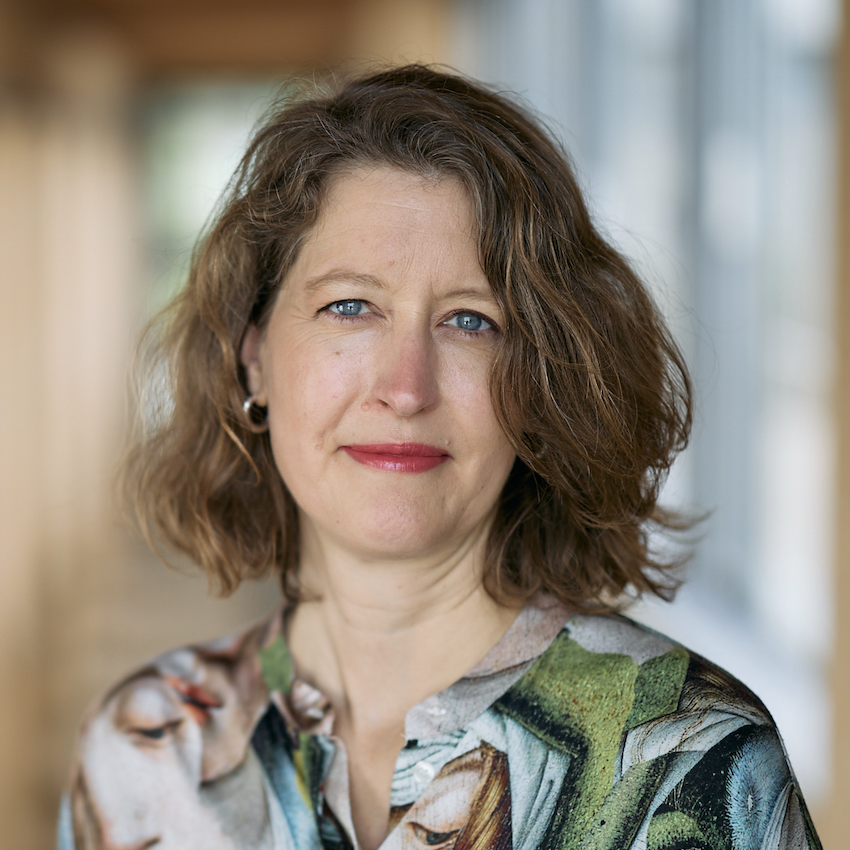
Sandra Whipham
Co-Director – Doc Society
I am passionate about this independent doc community and seeing it thrive and be recognised for the force for good that it is and the fact that the DFC is now in existence and moving forward – despite the challenges – is quite frankly amazing and wonderful. I feel optimistic about its future and it’s been exciting and rewarding to serve on the Interim board so far.
In standing for nomination I’m aware that I am not representative of the community itself (not a filmmaker) and also cannot speak for historically marginalised voices which must be one of our priorities.
What I can offer is the benefit of 12 years co-leading Doc Society which gives me a grasp of strategic leadership and how run a sustainable organisation over the long term. I have worked and work with filmmakers day to day and understand the needs of the community at an individual and a collective level.
I can add a 360 view of the global doc industry, and have knowledge of major sector trends as well as UK policy insight having been part of the BFI’s Covid and then Screen Sector Task Force and on the Advisory Committee of the Global Screen Fund.
Finally, I have a grasp of the big picture and ideas about how documentary might thrive in the future as the old models die and we have to carve out new spaces and audiences for our work.
